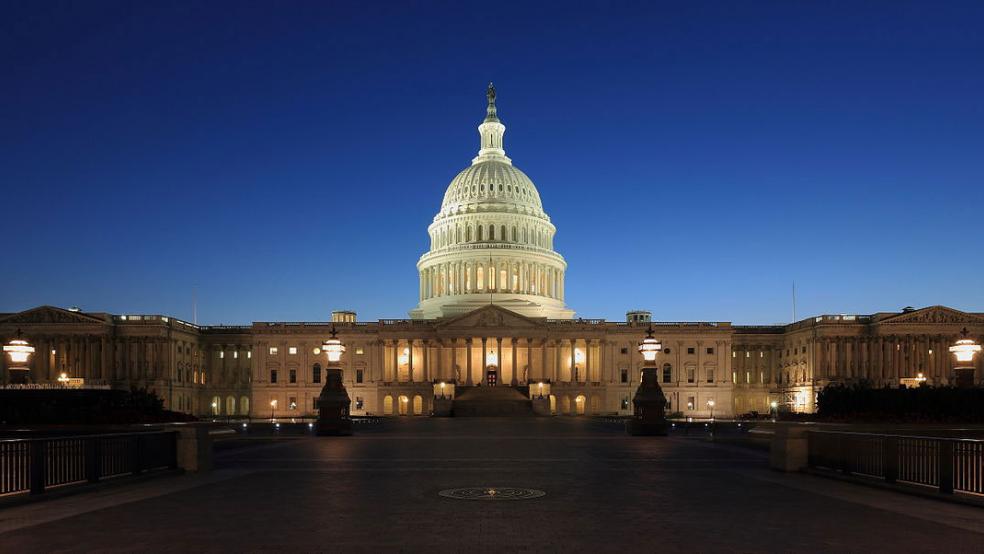House Speaker Nancy Pelosi (D-CA) said she’s “hopeful” that she can make a deal with Treasury Secretary Steven Mnuchin that would both raise the debt ceiling and set spending levels for the next two years. But an agreement had proved elusive so far, and lawmakers are beginning to talk about what to do if the deal falls through before the House leaves town at the end of next week for its August recess.
One key point of disagreement is how to account for $22 billion in spending on veterans health care, Erik Wasson of Bloomberg News reports. Pelosi doesn’t want all of those funds to count against the cap on nondefense spending, though she has signaled that she is willing to negotiate on that point.
A short term fix? Meanwhile, House Minority Leader Kevin McCarthy (R-CA) said that lawmakers should pass a 30-day extension of the debt ceiling if lawmakers and the White House can’t make a deal before Congress goes on its summer break. It’s not clear what a short-term extension would actually do, Roll Call’s Katherine Tully-McManus said, though waiving the debt limit until late September is one possible option.
Probably not. With Pelosi focused on a two-year deal, House Majority Leader Steny H. Hoyer (D-MD) threw cold water on the idea of a stop-gap solution, saying Tuesday that House Democrats are “not interested in a temporary increase in the debt limit.” Hoyer said he thinks a deal could be reached “very soon,” with a floor vote coming next week if there’s an agreement in the next few days.
House Budget Chairman John Yarmuth (D-KY) had a different take, however, telling reports that he thinks the most likely scenario involves postponing any action until after Labor Day.
Why it matters: The Washington Post’s Damian Paletta and Erica Werner provided a reminder of what is at stake in the negotiations:
“Mnuchin has warned that the Treasury Department could run out of money in early September if a debt ceiling deal isn’t crafted before the August recess, a position that some outside experts have also said is accurate.
If the debt ceiling isn’t raised in time, and the Treasury Department is squeezed for cash, it could lead to a spike in interest rates and stock market crash, among other things, because it could call into question the full faith and credit of the United States.”




